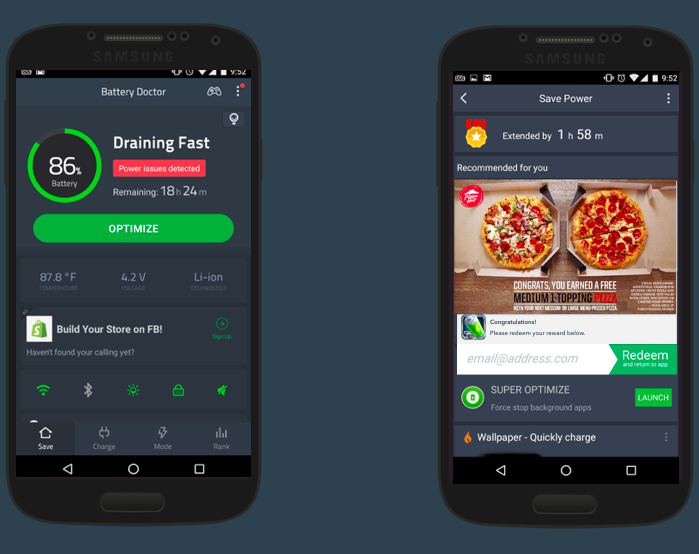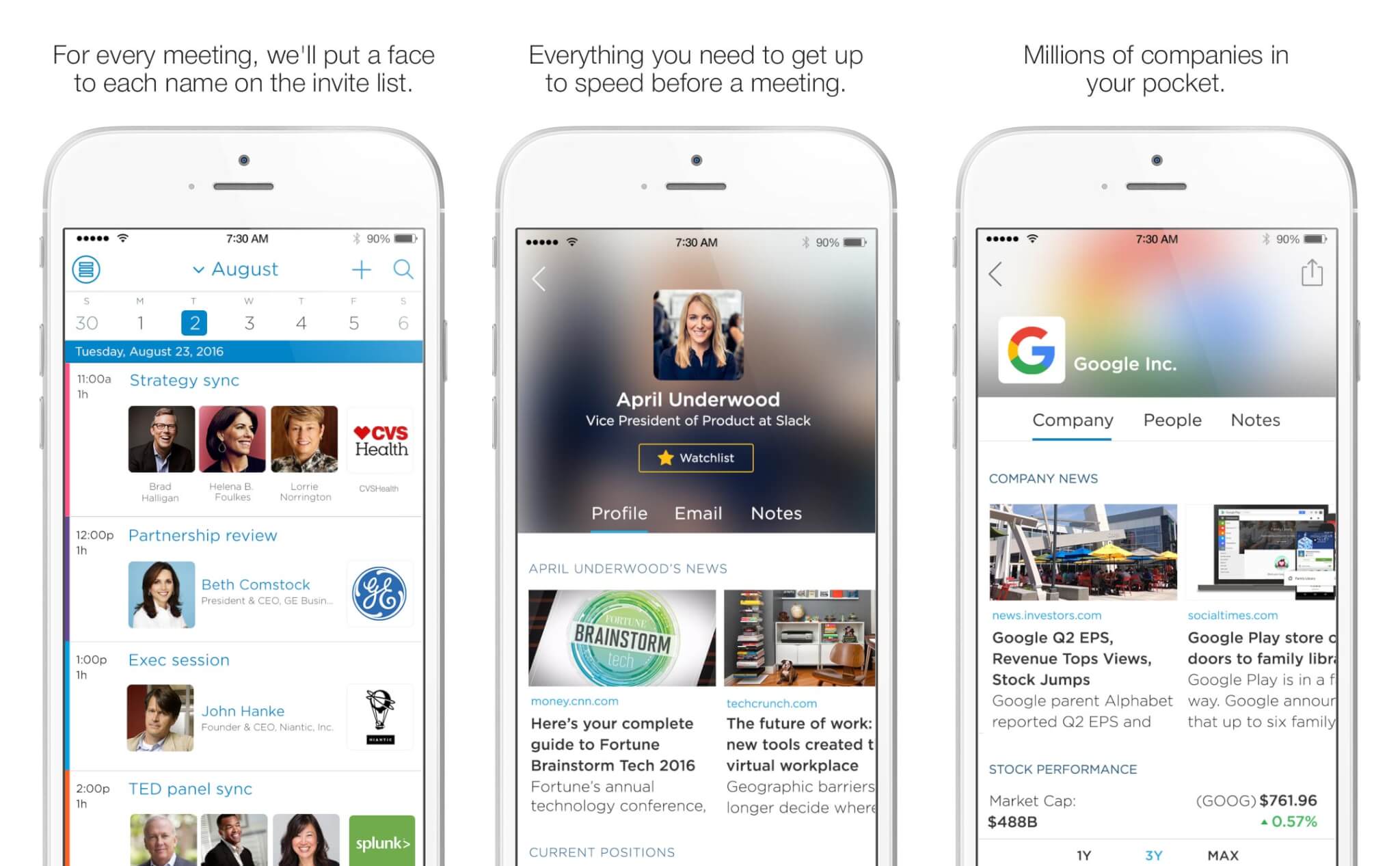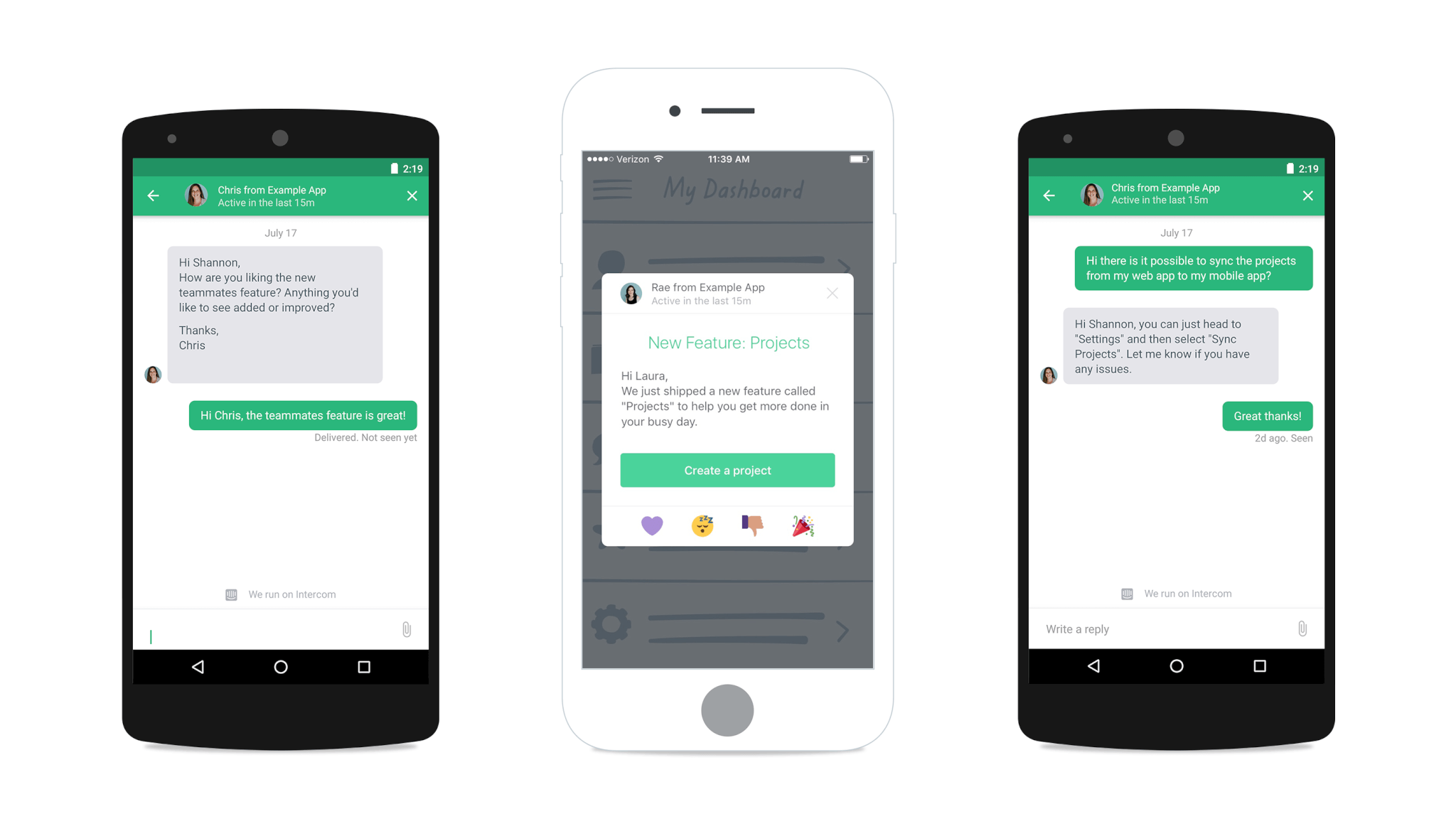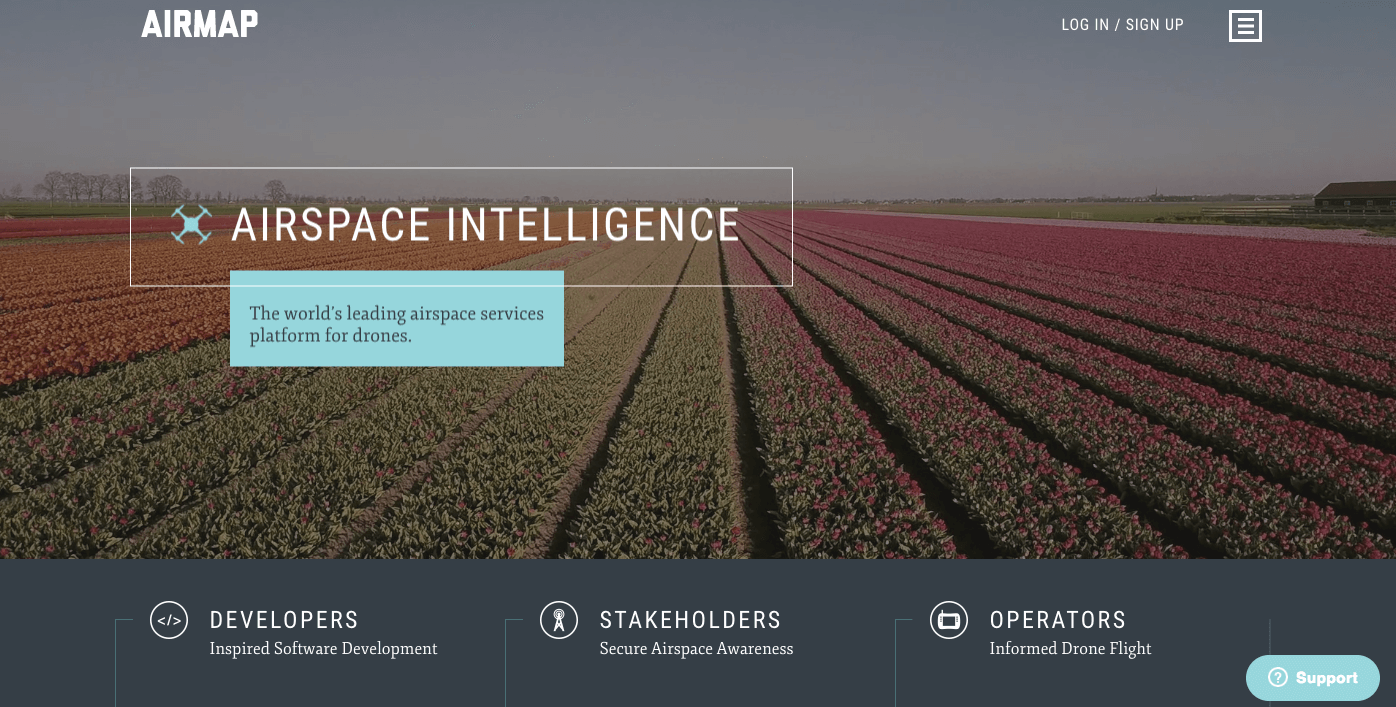People are gearing up to say good riddance to 2016, and as the Earth completes another revolution around the sun, we’re all eager to try our hand at predicting the next big thing. Will virtual reality, on-demand services, and bots shine again in 2017? Or will the spotlight turn to messaging apps, cybersecurity, and artificial intelligence?
Here are 15 startups that I believe are worth watching over the next 12 months. This is the latest in a series of annual posts — you can look back at 2013, 2014, 2015, and 2016 — and this one highlights companies that I predict will experience something interesting, possibly even major (good or bad), over the course of the next year. So here they are, in no particular order.
1. Eaze
In November, four more states voted to legalize marijuana: California, Nevada, Maine, and Massachusetts. With these results, pot suppliers are now able to legally tap into a potentially large market, and Eaze is looking to capitalize. The company is already in nearly 100 cities across California, delivering medical marijuana to more than 200,000 patients. Dubbed the “Uber for weed,” Eaze recently raised a $13 million round from DCM Ventures, Tusk Ventures, and Fresh VC, with the goal of expanding into new markets.
While it seems voters have paved the way for Eaze’s entry into some markets, what also makes the company worth watching is the fact founder Keith McCarty stepped down as CEO this month but has promised to remain as a strategic advisor. In his place will stand chief product and technology officer Jim Patterson. The company said Patterson’s “management background and technology expertise make him uniquely positioned to lead Eaze during a period of rapid industry growth.”
As one of the earliest companies to focus on marijuana delivery, Eaze could become a significant player in the space, but it’s not the only startup in the market. Eaze competes with GreenRush, Meadow Care, Nugg, and Speed Weed. It will be worth keeping an eye out to see how Eaze responds to not only its internal growth, but also the political and regulatory situations that present themselves.
2. Magic Leap
It’s only fitting that Magic Leap makes this list, especially after the press it received during the tail end of 2016. The latest report comes from The Information, which says Magic Leap “may have oversold what it can do” and that with all the marketing and demonstrations of its mixed reality technology, the real commercial application won’t be available for a while. In fact, there doesn’t appear to even be a target date for the release.
“Magic Leap, former employees say, pushed the boundaries of marketing, releasing videos that purported to be Magic Leap technology that were actually created by special effects companies,” according to The Information.
Company CEO Rony Abovitz naturally defended Magic Leap, assuring his Twitter followers that it will be a great success … eventually. So in 2017, it will be interesting to see if Abovitz and his team can move the technology forward and get it into the public’s hands, especially since Microsoft has already introduced its augmented reality competitor into the wild. Abovitz hasn’t been shy about telling the world what he thinks of Microsoft, either.
Yes, Magic Leap did make this list last year, but here’s hoping that it’ll do something more newsworthy in the coming one.
3. Kiip
In 2017, mobile advertising spend is estimated to comprise more than 26 percent of total marketing dollars in the U.S. That percentage may jump to nearly 33 percent by 2020. So as brands look for new ways to reach their customers, and consolidation in the space continues apace — just look at Verizon’s appetite for these type of companies — one stands out as having a potential banner year in 2017: Kiip.
Traditional online advertising isn’t cutting it anymore, and companies are concerned about where exactly their dollars are going. But Kiip isn’t just an ad network — it relies on “moment targeting,” which aims to reward people in a “serendipitous fashion.” Targets are based not only on page, screen, or context, but by factoring in other important elements, such as geolocation and mobile device performance.
More than 60 million people have redeemed a “reward” powered through Kiip, and more than 5,000 apps are using its developer SDK. In April, the company formed a partnership with China-based Cheetah Mobile to incorporate its advertising model into that firm’s popular apps: Clean Master, Battery Doctor, CM Security, and Piano Tiles 2. This is noteworthy, as eMarketer reports that advertisers in China are shifting more of their marketing dollars online, giving Kiip an opportunity to tap into the market.
4. Octane.ai
2016 was the year of bots, with messaging platforms Kik and Facebook joining the likes of WeChat, Line, and Slack in supporting these applications. Tens of thousands of chatbots have since been created for various use cases, but executives from companies like Facebook admit that many offer little value and that the whole thing has been overhyped. Brands looking for the next big thing, on the other hand, are trying to figure out how they can jump on the bandwagon. This is where Octane.ai may prove useful.
Started by Chatbot Magazine founder Matt Schlicht, DominateFund venture capitalist Ben Parr, and Omegle.com chat service founder Leif K-Brooks, Octane.ai wants to make it easier for brands to build bots. You could say the company wants to be the Squarespace or Weebly for bot technology. “You don’t have to be an expert in designing conversation. You can have a bot up and running in three to four minutes, not just as a big business but as a mom and pop shop…the 99 percent of people who don’t know how to program,” Parr told VentureBeat in November.
Octane.ai already has $1.5 million in the bank from investors like General Catalyst’s Phil Libin, Boost VC, Dimension 6, and others. Bots have already been created for 50 Cent, Aerosmith, KISS, Magic Mike, and Spin.
As bots continue to fight for respect, has Octane.ai put all of its eggs in one basket? Perhaps bot-building services will help brands provide actual value, instead of resorting to a spray and pray mentality.
5. Nomiku
Two years ago, Nomiku entered the cooking market, following a trend of connected hardware that allows anybody to create delicious food in their own home. With a Kickstarter campaign, the company raised more than $750,000 to bring its Wi-Fi sous vide device to market. But what makes it so special? Nomiku promises that you’ll not only never serve overcooked meat again, you’ll be able to cook like a professional chef.
This Y Combinator alumnus has a mobile app from which you can control the device, so you don’t have to stand around and wait while dinner’s cooking — everything can be handled programmatically.
But it’s not just cooking hardware Nomiku is selling, it’s also a community. There’s a community-driven recipe app where people submit actual instructions for dishes that can be prepared with the device.
The company recently appeared on Shark Tank, where it said that it has sold $3 million worth of products in the past four years. And while many of the “sharks” declined to invest, Nomiku secured the backing of Chris Sacca, who agreed to a $250,000 deal for 10 percent of the company.
With all of the hype around sous vide cooking and the fanfare around Nomiku, it will be interesting to see if the company is able to further grow its business in the coming year.
6. IFTTT
Connected devices continue to flood the marketplace and are becoming part of our daily lives. Through cars, cooking hardware, refrigerators, messaging apps, cloud-based platforms, and even things like Amazon Echo or the Google Home, companies are looking for ways to tie in what they have with these new contraptions. This is where IFTTT may play a crucial role. It has been slowly adding third-party integrations over time to accommodate this trend. From letting Google Assistant set and monitor your Nest thermostat to having Alexa secure your home at night, there are applets available for anyone who no longer wishes to be confined to the original manufacturer settings.
As one IFTTT investor told us under the condition of anonymity: “With Amazon, Apple, Google, Samsung, and Microsoft all aggressively pursuing these channels and establishing IFTTT partnerships, the company seems very well positioned for 2017 and beyond.”
7. Houseparty
Meerkat is dead, but its creators haven’t given up on the potential of live video. Their latest creation is a group video chat app called Houseparty. Since its launch in September, more than 1 million people have signed up to use the service — a pretty good comeback for a company that almost went under after Twitter terminated its API access.
Houseparty has drawn the attention of both young people and venture capitalists. Earlier this month, the company raised a $50 million round led by Sequoia, with participation from Aleph, Comcast Ventures, and Greylock Partners.
Houseparty isn’t exactly a pioneer in the space, but it has seen some solid growth. It competes against services like Skype, Google Hangouts, and even Facebook Messenger, but its appeal may lie in its simplicity — people signal that they’re available to chat and that’s it. Up to 8 people can join a conversation. Perhaps part of the intrigue is the Meerkat story and the idea that the service is not corporate, like Facebook, Google, or Microsoft.
We’ll see if Houseparty remains a popular app amid strong competition in 2017.
8. Accompany
Calling itself your personal chief-of-staff, Accompany aims to combine the best elements from smart calendar services like Tempo and Sunrise with the capabilities of Rapportive to provide executives with the precise bits of information they need to get through their day. Founded by former Googler Amy Chang, Accompany raised $20 million this year and launched a beta version of its app in both the U.S. and U.K.
The app aims to provide all the information you need before you walk into a meeting, including prior conversations with attendees and details about their lives, news reports on the meeting topic, relevant files and documents created, and more.
Accompany’s launch comes as most smart calendar apps have been either been acquired or faded away. Salesforce grabbed Tempo last year, and Microsoft picked up Sunrise, so the question is whether there’s enough interest to sustain another calendar app. Perhaps there is, especially for one that’s tailored to a particular niche, as Accompany is.
9. Leade.rs
Loïc Le Meur has always had an eye on the latest trends in technology, as an entrepreneur with Seesmic, as an investor, and as a curator — he and his partner Geraldine started the Le Web conference, which ran for 12 years and explored emerging technology. Now he’s started a new company called Leaders, which aims to be the Product Hunt for people, helping us connect with influencers and experts who are working on things like virtual reality, artificial intelligence, chatbots, and digital health.
Launched a year ago, Leaders was inspired by Le Meur’s passion for discovering the best people. “I love finding new, interesting people doing amazing things,” he once wrote. What makes the company noteworthy is that it’s not focused on saturated markets and technologies — such as photo-sharing apps or social networks — but is looking instead at emerging trends. This is fitting, as Seesmic was early in the game with its focus on video messaging, something that we see a lot of today.
It will be interesting to see if Leaders experiences the kind of traction that Product Hunt managed in just three years, perhaps giving TED and other thought leader events a run for their money.
10. Clarifai
Artificial intelligence was all the rage in 2016, and we should expect more acquisitions and new developments in 2017. Clarifai is a company that will be worth watching, not only because of what it does, but also because it possesses some valuable brainpower that could be appealing to a bigger company.
Started in 2013 by Matt Zeiler, a former Google Brain intern considered to be quite the expert in machine learning, Clarifai specializes in visual recognition. It provides services to brands like Unilever, Trivago, 500px, Pond5, Curalate, and others. Earlier this year, the company introduced new tools that make it possible for developers to easily integrate visual recognition services into their apps, essentially turning itself in a platform.
Clarifai also raised another round of funding in 2016, bringing in $30 million to grow its team and continue as an independent company. The machine learning space has seen some interesting times this year, with competitor Skymind raising a $3 million seed round, Salesforce buying MetaMind, IBM acquiring AlchemyAPI, Intel snatching up Nervana, and layoffs at Ersatz Labs and H2O.
11. Intercom
Customer service is no longer limited to responding to emails and phone calls. Brands have to be responsive to questions and feedback wherever their customers are. Intercom has emerged as a hot service in the space, with more than 15,000 paying customers, including Expensify, Product Hunt, New Relic, and Shopify, and a reach of more than 1 billion users.
People are currently infatuated with the idea of deploying a bot to facilitate customer support, but why should users have to jump away from their online and mobile presence into a third-party messaging app? Intercom enables companies to add messaging capabilities into their app or product so customers can engage them there. The experience feels like Facebook Messenger, even though on the back end it’s connected with the data businesses are interested in.
Software providers are interested in this kind of offering, and you’ll likely see some additional entrants in the near future. Salesforce recently launched its LiveMessage feature to tackle the conversational space, and while it’s not technically the same as Intercom, it’s nevertheless a competitor.
Investors took notice of Intercom’s progress and ponied up an additional $50 million in April. Intercom told VentureBeat that this would be its final round of fundraising and said that it will soon be profitable.
12. DeepScale
In case you haven’t heard, we’re about to witness the mass production of self-driving cars. This year saw quite a bit of development in vehicle autonomy: Tesla’s autopilot feature has so far driven 222 million miles; Alphabet’s Waymo was spun out and has partnered with Fiat Chrysler to integrate its technology into minivans; Comma.ai stopped fighting regulators and open-sourced its technology; and Uber brought its self-driving cars to California … Arizona.
DeepScale is throwing its hat in the ring with its perception software for autonomous vehicles. It’s worth watching to see whether automakers such as Honda, Toyota, and GM will invest further in the technology. Not much is known about DeepScale — including whether the technology works — so it’s hard to say whether 2017 will be the year it launches and makes a splash or the year it officially fails to live up to expectations.
13. Atlas Informatics
Our digital lives can get out of control, managing files, images, text messages, calendar invites, and the rest. Atlas Informatics is seeking to bring order to that chaos by providing search capabilities along the lines of Google, but specifically limited to your information.
The company, founded by Napster cofounder Jordan Ritter, makes the Atlas application that runs behind the scenes on your desktop. Atlas released a Mac open beta version in November that will index everything you see across your devices and apps — but only if they run iOS or Mac OS. It bears some similarities to Found, a startup that was acquired by Hightail (formerly YouSendIt) in 2013. That application allowed users to search for files, documents, and data across devices and cloud services.
Whether Atlas’ technology can help improve our productivity remains to be seen, but if it succeeds, plenty of people will take back at least a few minutes of their day from endlessly sifting through buckets of information.
The Seattle-based company recently raised $20 million to further its mission of being the one search engine to rule them all. Investors include Microsoft, Aspect Ventures, and Nathan Myhrvold.
14. AirMap
What, you thought drones were going away? Nope. According to ClearBridge Investments, commercial drone usage will pick up over the next 3 to 5 years as part of a larger trend around automation. Companies like Amazon are already testing unmanned aerial vehicles’ ability to deliver packages, while others are using them for crop spraying, surveillance, industrial inspection, scientific measurement, and more.
It’s one thing to get drones up in the air, but how do you ensure the safety and reliability of these devices? AirMap bills itself as an airspace intelligence company, providing systems for developers and operators to make sure their drones don’t interfere with normal life. It’s already working with companies like Intel, 3D Robotics, Aeryon Labs, and DJI. AirMap is looking to create a standard system that all drones could utilize to prevent accidents, something similar to what airplanes currently use to navigate the skies.
The company raised $15 million this year from General Catalyst Partners.
15. Civis Analytics
Civis Analytics was started in the aftermath of President Obama’s successful re-election in 2012 to offer companies better tools for data analysis. The company recently raised $22 million in series A funding from Drive Capital, Verizon Ventures, WPP, and Alphabet executive chairman Eric Schmidt. “Everyone knows that they need to be using data, but most don’t know where to start,” company CEO Dan Wagner explained in November. “Or, if they are using data, they aren’t necessarily asking and answering the right questions.”
Research firm McKinsey has predicted that by 2018, there will be a 50 percent gap between the supply of data scientists and the market demand. Data analysis serves an important role in understanding what figures and numbers a company receives, especially as more and more customer data becomes available. Civis Analytics believes it can help fill this gap with its core product, which offers tools, algorithms, and data to suit any workflow.
Companies using this offering include Airbnb, Boeing, Discovery Communications, the Bill & Melinda Gates Foundation, Verizon, Robin Hood Foundation, and the 2020 U.S. Census.
Happy New Year!
While this is by no means a comprehensive list, we’ll certainly be watching to see what happens with these 15 companies in the year ahead.

















